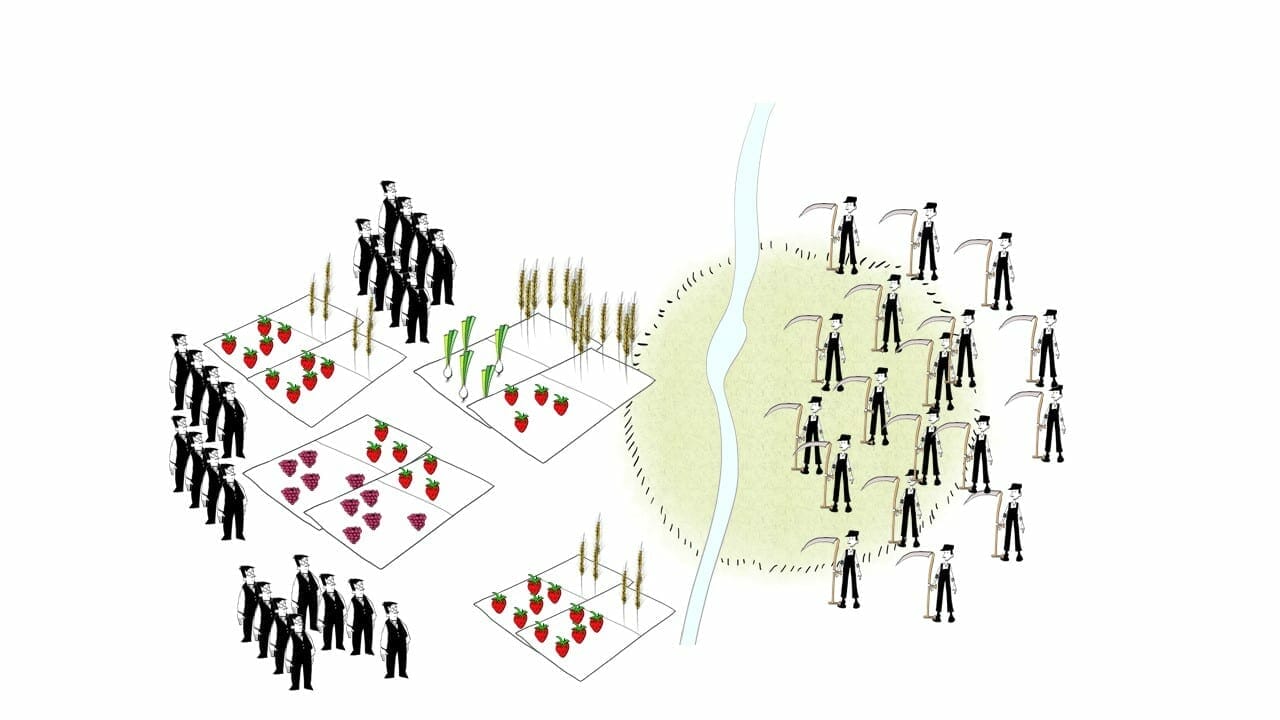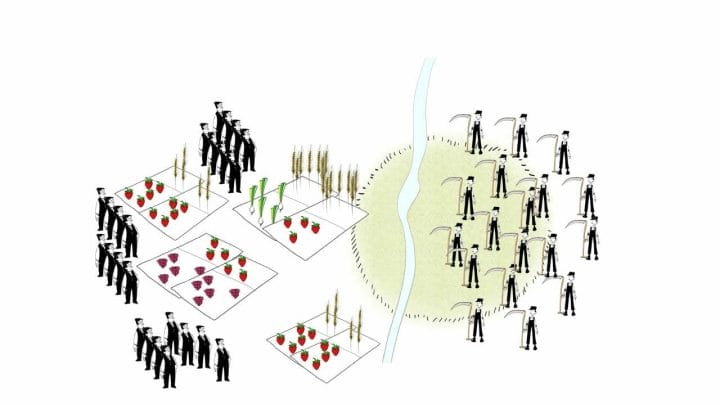The residents of Econvillage100 have therefore decided that there should no longer be a central planner. Nobody should be responsible for their economic organization because only then are they independent of an incompetent, greedy central planner.
How can this work? It can only work if everyone takes (economic) responsibility for themselves or something personally. Economic decisions, such as those to do with work effort, must have a very direct impact on the fulfilment of personal needs, such as the quantity of food. Everyone has different wishes and it is precisely these things that are best sorted out personally. And of course, in doing so, it should be ensured that the fruits of each person’s labour cannot simply be stolen. This is when the motivation to become economically involved is at its greatest. How can this be achieved?
After protracted discussions, the Econvillager100 decided that the best way to achieve this is for everyone to own something which they can freely dispose of. Then everyone will look after their own possessions and implement them in such a way that their wishes can be best satisfied. The Econvillagers therefore use a lottery to parcel out the fertile land including the plants. Those who come away empty handed will be given the only scythes and other tools for working the fields. Now there are land and scythe owners. No group manages to survive without the other. This is now called Econville. How do people organize themselves in Econville?
You can surely easily see that the answer amounts to a market solution. It corresponds to a situation which is closest to our reality. The soil owners will employ the scythe owners to work on their fields. Since there is no money, everything is compensated with food. Food is exchanged between people in such a way that individual needs are best satisfied. This is surely more promising than distribution through a central planner who cannot know the individual needs of each person.
The following point is important: the introduction of private ownership and the fact that you can dispose of your equipment as you see fit creates an incentive to optimize profit in the form of food or even free time since any profit gained ultimately belong to the person who earned it. By introducing private ownership this automatically results in the market form of organization.
Of course this is a fanciful world. If there are occasional problems, then issues of ownership need to be simply and reliably clarified. For the sake of “economy”, there needs to be a functioning system of property ownership and contracts must be (easily) enforceable – otherwise there cannot be a market solution. This is why in Econville they have established a perfect legal system which corrects violations of property and contract at minimal costs. They therefore understand that economic activity can never be independent of other institutions, such as those of a legal system.
Read our next blog entry “Economics” to find out what “nobody” means in a market, how the market can be illustrated and what role prices play. Consider now how you would illustrate “market”…
About the author(s)

Prof. Dr. Johannes Binswanger Professor of Economics
Newsletter
Get the latest articles directly to your inbox.
Share article
More articles
The Future of Work and the Central Role of Diversity & Inclusion
Leadership in Transition: Five Trends of Modern Leadership
The future of work – also relevant for the legal market?
Why inclusive leadership matters for every generation
Do young lawyers need leadership, too? Classification according to generations – slightly arbitrary, but useful


